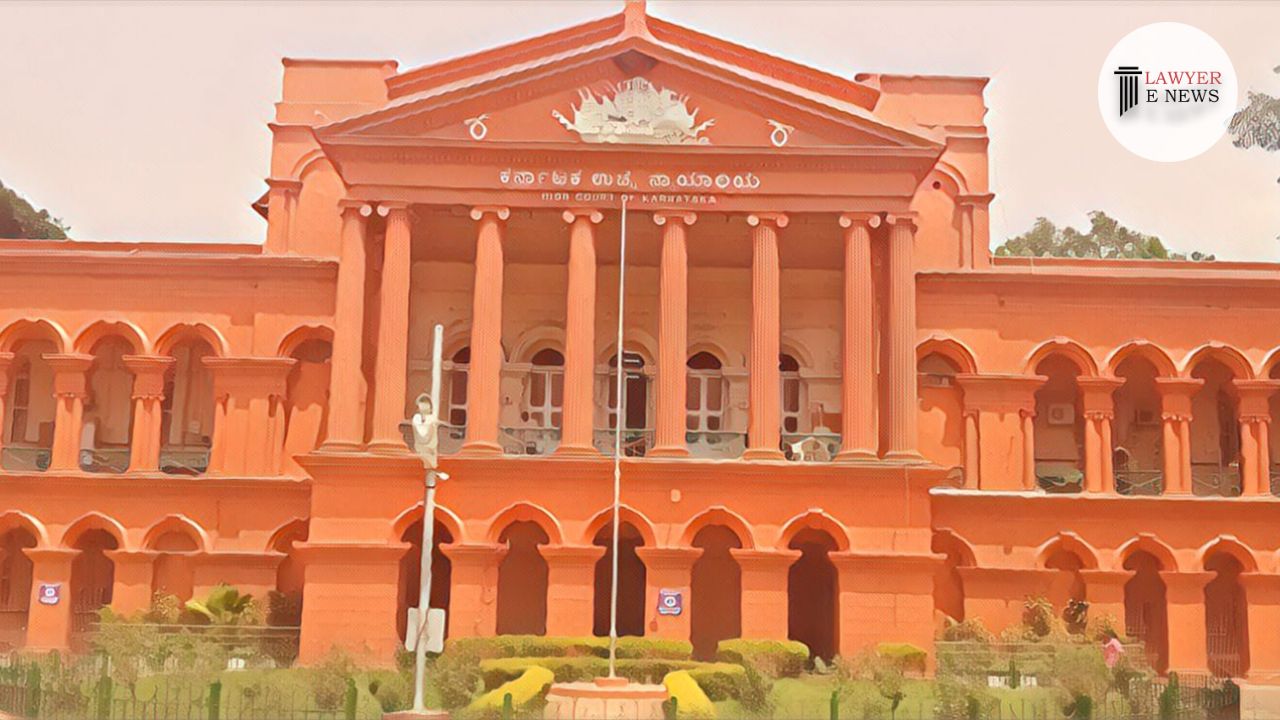-
by Admin
15 February 2026 5:35 AM



In a pivotal decision, the Karnataka High Court has overturned an order by the III Additional Principal Family Judge, Mysuru, regarding the territorial jurisdiction in a child custody dispute. The judgment, delivered by Justice M. Nagaprasanna, emphasizes that jurisdiction in such matters lies where the minor ordinarily resides, reaffirming established legal principles and the welfare of the child.
Background: The case involved Samiulla Saheb and Mubeen Taj, the grandparents of a minor child, who challenged the jurisdiction of the Family Court in Mysuru. The child, who has been living with the petitioners in Chamarajanagar district since the death of their daughter, was sought for custody by the respondent, Mohammed Sameer, the child’s father residing in Mysuru. The Family Court had previously rejected the petitioners’ application to transfer the case to Chamarajanagar, prompting the appeal to the High Court.
Emphasis on Ordinary Residence: The High Court highlighted that the primary consideration for determining jurisdiction in child custody cases is the “ordinary residence” of the minor. Justice Nagaprasanna referenced Section 9 of the Guardians and Wards Act, 1890, stating, “The law directs that the application for guardianship of a minor should be filed before the court where the minor child resides, as only that court is conferred with jurisdiction.”
Rejection of Family Court’s Interpretation: The Family Court had rejected the petitioners’ application for the return of the plaint, focusing instead on the parents’ residence. The High Court found this interpretation flawed, asserting that the minor’s place of residence is the decisive factor. “It is trite law that a court without jurisdiction, even if it has travelled up to the stage of reserving the matter for its judgment, would be a proceeding which is a nullity in law,” the High Court observed.
The High Court’s decision is rooted in a comprehensive interpretation of Section 9 of the Guardians and Wards Act and relevant case law. The judgment referenced the Supreme Court’s ruling in Ruchi Majoo v. Sanjeev Majoo (2011) to clarify that the ordinary residence of the minor child determines jurisdiction. The court dismissed the Family Court’s reliance on Section 20 of the Code of Civil Procedure (CPC) as incompatible with the specific provisions of the Guardians and Wards Act.
Justice Nagaprasanna emphasized, “Ordinary residence would depend upon the intention of the parties to make the child stay in that place which would be a matter of evidence. It is not where the father or mother resides that would confer jurisdiction, but it is where the child resides.”
The High Court’s decision reinforces the legal framework for determining jurisdiction in child custody matters, prioritizing the child’s ordinary residence. By quashing the Family Court’s order, the High Court has ensured that the case is heard in the appropriate jurisdiction, thereby safeguarding the procedural rights of the minor and upholding the principles of justice. This ruling is expected to have a substantial impact on future cases, guiding courts to adhere strictly to the residence criteria set forth in the Guardians and Wards Act.
Date of Decision: 22nd April 2024
Samiulla Saheb & Anr. V. Mohammed Sameer
